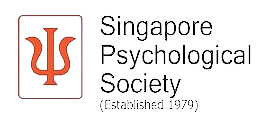Did you know that about 15-20% of the world’s population is neurodivergent?
This includes up to 10% of people with dyslexia, 6% with dyspraxia, 5% with ADHD, and 1–2% with autism! (Source: National Library of Medicine UK)
What is neurodivergence?
Neurodivergence refers to an individual whose brain processes information in a way that is not as typical as most individuals.These individuals experience different strengths and struggles from those with more typical brains and work styles. One of the descriptions which we find really helpful is that neurodivergent brains are driven by passion and interest whilst the neurotypical brain is driven by belonging and what is ‘right’.
A key aspect of neurodivergence is its lack of recognition and prevalence across different cultures and societies. These differences were often misunderstood and stigmatised, and still is to some extent in most settings. However, in recent years, with growing awareness and psychoeducation, it is more understood that neurodivergent traits are not inherently negative but can contribute positively to society. Neurodivergent individuals often have exceptional abilities that can enrich workplaces and communities, such as incredible attention to detail, creativity, and problem-solving skills, proving to be valuable in numerous fields.
Unfortunately being given the label of neurodivergent can lead individuals to panic and feel isolated. They feel different. It is important to note that they are not alone, and nearly 20% of the world functions differently to the majority of the population. A diagnosis can be an important first step to feeling heard and understood, putting a name to your feelings of standing out, not quite fitting in and working differently. Although a diagnosis is not essential.
Neurodivergence can be identifiable
You can self identify if you feel that the characteristics are representative of your experience. Additionally, support from mental health professionals, who are experts in neurodivergence, can make it easier, helping you to understand your thoughts and experiences and finding ways to function at your full potential, making utmost use of your strengths.
In the case of younger children, getting your child diagnosed at a young age can be useful for their future, as schools will often provide support in their education journey, to ensure they have ample guidance. Early diagnosis can also lead to early intervention which has been found to lead to reduced risk for mental health issues and academic challenges. With a diagnosis, schools can add extra time, tutoring, extensions and more. Having the guidance from a young age can make their adult life easier to navigate as a neurodivergent individual.
Here at Us Therapy Singapore, we have an incredible team of counsellors, educational psychologists and clinical psychologists to provide you and/or your child with support and guidance. We offer numerous psychological assessments for a variety of disorders such as ADHD, Autism and more for all age groups. We would be honoured to provide you with support and guidance in your journey




